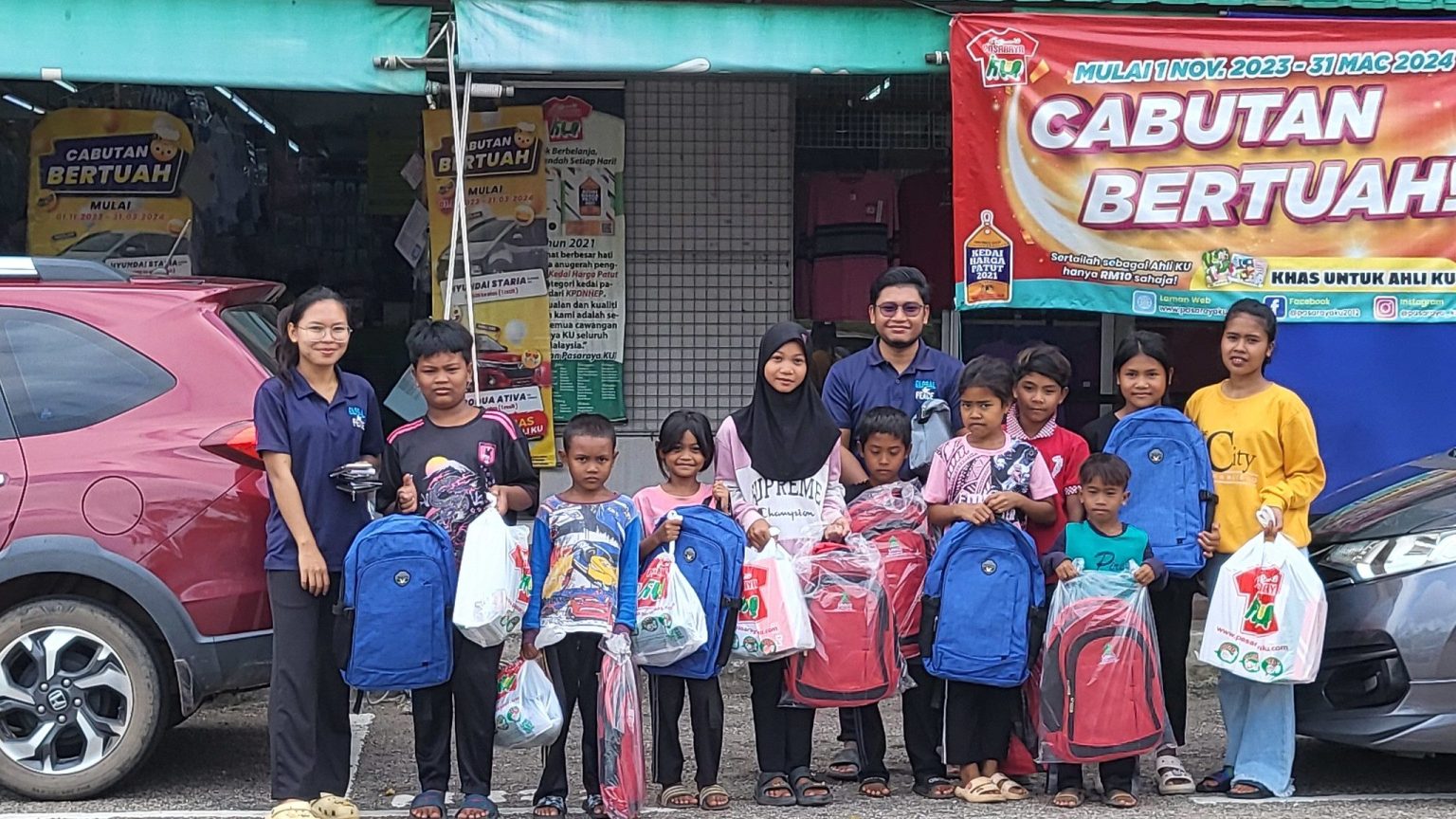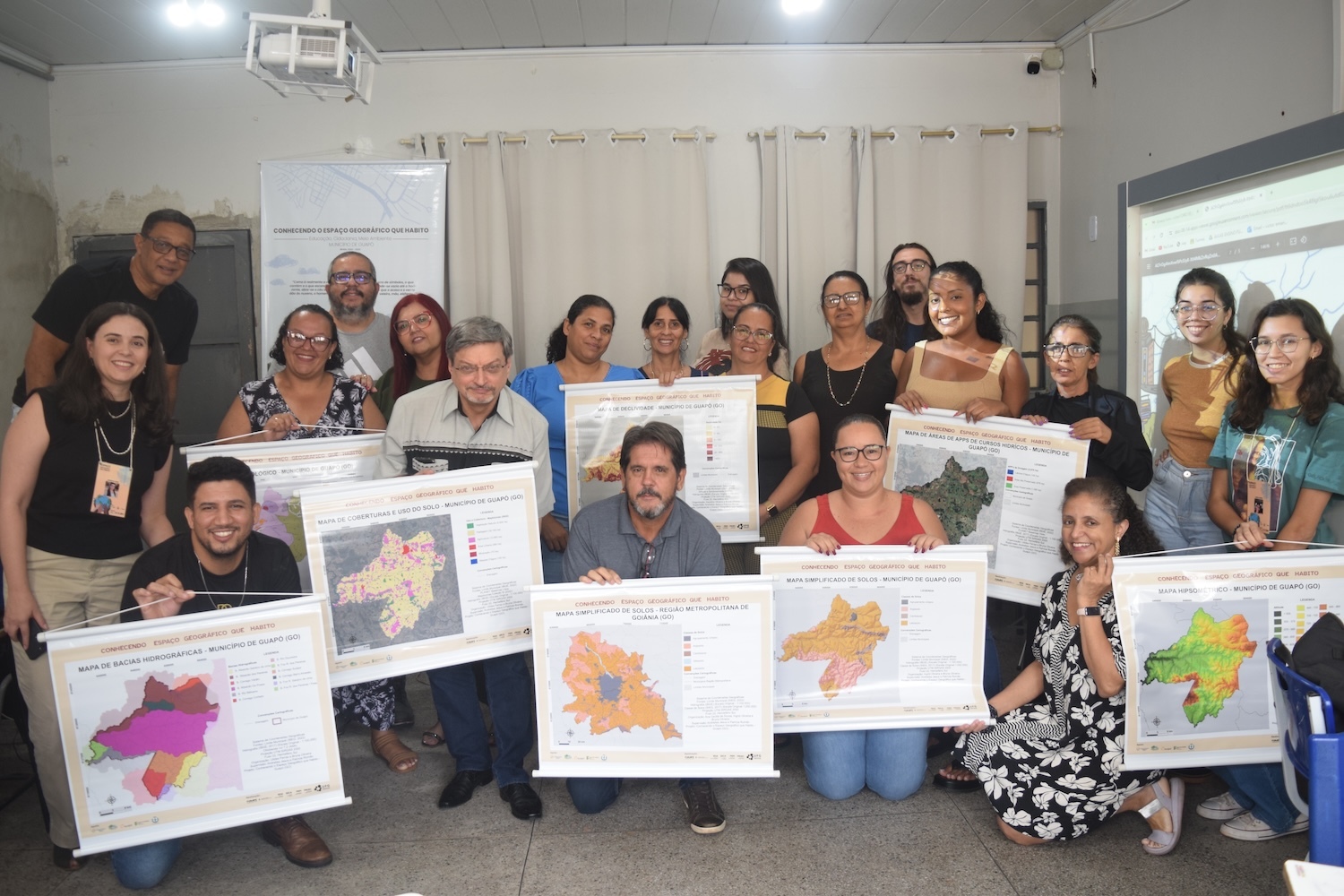The following story is the final piece in a three-part series covering the captivating experience of Russian-American Vladimir Somov’s solo trip to a country shrouded in mystery and controversy: North Korea. Somov is a first-generation American descended from parents who grew up in the Soviet Union before moving to the United States. Equipped with fluency in both the English and Russian languages, he was the first American high school student to visit North Korea in the summer of 2019 through a Russian airline. To read his story from the beginning, click HERE.
The remainder of my trip allowed me to observe significant differences between our worlds.
Virtually every good and service is limited for the people of North Korea. There are only five different television channels, all of which are monitored by the government in order to broadcast nationalistic propaganda about the North Korean army, Kim Jong Un, and the “greatness” of the country.
I learned that, as in the Soviet Union, North Korean civilians are not able to buy their own apartments or houses. Rather, after graduating from college, serving in the military, and getting married, civilians are placed on a “waitlist.” Then, after anywhere from a few months to a few years, they are assigned the apartments. Meanwhile, young people and newly married couples live with their parents (couples live with the husband’s parents) while awaiting their own places to come along. Cars, meanwhile, are not available to regular people. The only way to get a car in North Korea is to be awarded one by the government. In those circumstances, people cannot re-sell the car, and can only hand it down to their next of kin.
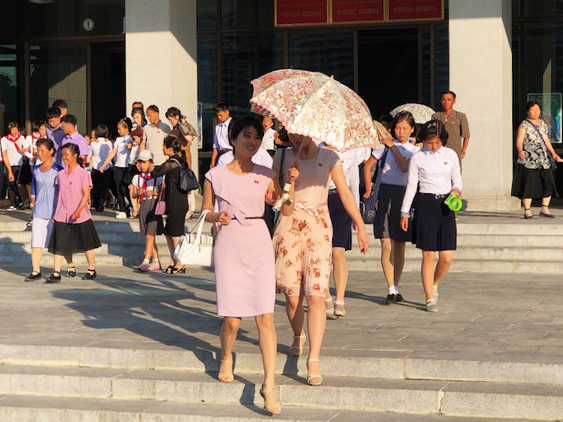
North Korean women wearing knee-length outfits and dress shoes (Photo Credit: Vladimir Somov)
The dress code, too, was uniform. The people I saw dressed similarly in the 1950s-1960s style. Women wore monotonous dresses and heels, while men wore dull-colored shirts, pants, and dress shoes.
My guides took me to a special store that sold foreign goods, including shoes made outside of North Korea but were of a more dated style. All the prices were listed in US dollars, and the prices were in-line with western prices. Consequently, only North Koreans who had access to foreign currency could be able to purchase items in the store.
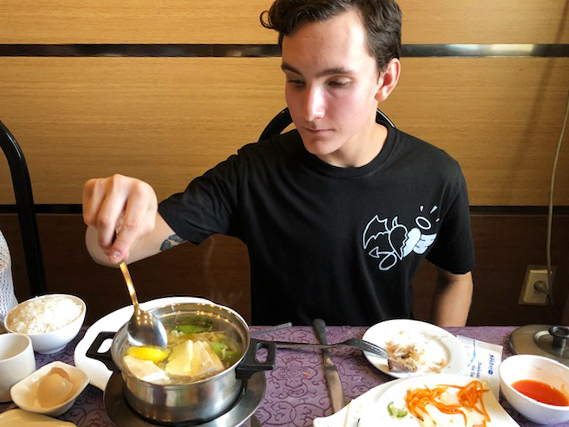
Vladimir eating hot pot in North Korea (Photo Credit: Vladimir Somov)
Perhaps the most notable detail was that there was plenty of food available for foreigners like me. At restaurants, I was able to get a Korean hot pot and naengmyeon, a traditional Korean cold noodle dish, among other options. For foreign tourists, all the meals in the restaurants are pre-arranged and pre-paid. I ended up unexpectedly gaining some weight in North Korea, a fact I couldn’t help but contrast with the knowledge that in 2019, UN agencies said that North Korea was experiencing severe food shortages, exacerbated by one of the worst harvests in a decade, affecting 40% of the population.
Return
On my flight to Beijing from Washington, on the way to North Korea, Delta played a commercial on the flight entertainment system, which struck me as profound in the aftermath of my visit.
“When we are born, we are more alike than different. But, as we grow older, we think the more distant we are the more different we are as well,” the commercial said. “When you venture out, you can see all the things we have in common with one another. The power of flight can help bring us together and show us that we weren’t ever that far apart.”
My trip to North Korea was just that — an opportunity to see beyond the headlines. Although living in an entirely different political system, with regulations and reality beyond my own, the regular citizens of North Korea could be more like us than meets the eye.
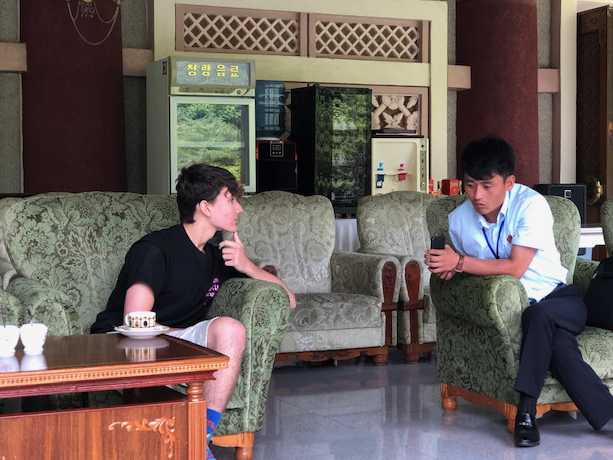
Listening to understand North Korea’s situation (Photo Credit: Vladimir Somov)
Fundamentally, we all have things to worry about in order to survive. The actual factors may be different – but the similarity is that survival is at stake. Who knows, with more exposure to a less surreal reality, the people of North Korea might just make the kind of transition that millions and millions of Eastern Europeans have made in recent decades, my parents among them, that would make them a lot more like us. What I mean is that, while decades ago, the average American thought of Russians as enemies, the generalization no longer works, not with the actual people of Russia. That is a huge shift.
North Korea is about 1/80 the size of the United States. Yet it matters to the US (and the rest of the world). We share a planet and what one country does will affect the other, and not in a small way. If there are no other reasons to have empathy for one another, that alone is reason enough. The political and ideological differences are so vast that the only way to transcend them is to connect on a human level. We are here, we are stuck with each other. Empathy gives us a chance. The shortest route to empathy is through human contact and interaction, no matter how regimented. It is harder to hate someone you know than someone you know nothing about.
My message to everyone is that studying and learning more about North Korea and its people can only help bring us one step closer to building sustainable peace.
More on the Author
Vladimir Somov has traveled internationally from a very young age and developed a keen interest in foreign affairs, international relations, and politics. While bilingual in both Russian and English, he is also familiar with French and Korean. Somov is currently a primary researcher for an upcoming book on North Korea and US-North Korean relations by Dr. Tony Namkung, a prominent expert on North Korea and a White House advisor. He also works as a Junior Editor for his school newspaper and is the Founder and President of St. Albans School’s Russian-Asian International and Cultural Affairs Club.


